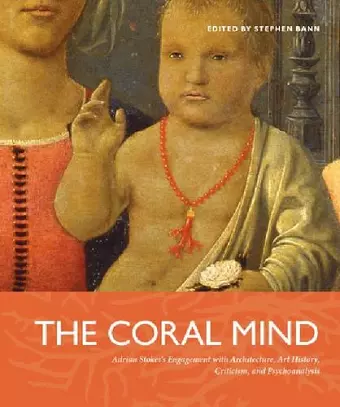The Coral Mind
Adrian Stokes's Engagement with Architecture, Art History, Criticism, and Psychoanalysis
Format:Paperback
Publisher:Pennsylvania State University Press
Published:15th Nov '07
Currently unavailable, and unfortunately no date known when it will be back

Our view of modernism in the arts has been largely shaped by the prominence of painting and, in particular, by a succession of major painters working in Paris—from Courbet and Manet to the Cubists. Moreover, modernist aesthetics has come to be equated with the concept of formalism, which has been both advocated and attacked in the critical roster of the twentieth century. Adrian Stokes offered a singular critical voice challenging us to think differently about modernism. Guided by his personal interpretation of the early Renaissance and by insights derived from psychoanalytic theory, Stokes developed his own style of communicating the truths of aesthetic experience.
The essays in The Coral Mind make Stokes required reading for anyone with a serious interest in British modernism; psychoanalysis and art; alternatives to Clement Greenberg’s account of modernism; the relevance of architecture, sculpture, and ballet to our understanding of twentieth-century art; “writerly” art criticism; and the concept of “research” in art history.
Contributors include David Carrier, Martin Golding, Michael Ann Holly, David Hulks, Étienne Jollet, Stephen Kite, Peter Leech, Alex Potts, Richard Read, Janet Sayers, Lyndsey Stonebridge, and Paul Tucker.
“To the outside world, scholarly activity must often seem exceedingly tedious and of questionable purpose. To those who practice scholarly inquiry, even imperfectly, the prospect of a single mind grasping and engaging its subject with focused intellect can be thrilling. That fascination may explain the revived appreciation of Stokes’s writings as records of his intellectual grappling with meaning in art, critical apprehension, and the creative psyche. The Coral Mind is the latest addition to this published appreciation, a collection of 12 intriguing essays on various aspects of Stokes’s critical inquiry. Guided by honest questions about why and how one reads Stokes today, the essay authors approach the reflections put forth by Stokes from differing perspectives that reveal the complexity of his observations. Stokes’s methods of inquiry do not consistently follow the prevailing theoretical approaches of 20th-century art historical scholarship of iconography, social history, or psychoanalysis, but they converge with all these methodologies in his uniquely subjective response to the space, place, and surface of the art object. Readers who enjoy questioning their own intellectual processes in encounters with created forms will appreciate the mind revealed in these essays. Summing Up: Recommended for graduate students and faculty/researchers.”
—W. S. BradleyChoice
ISBN: 9780271029702
Dimensions: 254mm x 241mm x 16mm
Weight: 880g
240 pages